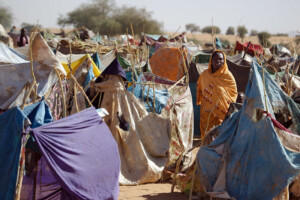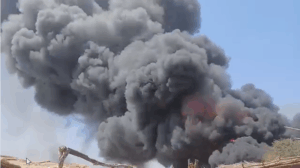Sudan doctors: One protestor killed, dozens injured during ‘brutal crackdown’ on Saturday processions
The Central Committee of Sudanese Doctors (CCSD) announced the death of protestor Mohamed Khalis (20), in Omdurman on Saturday. A nationwide escalation was announced by various resistance committees over the killing of Khalis, as well as the dozens wounded during the heavily suppressed Saturday processions.
 Mohhamed Khalis 'Gishta' (20), killed during the Saturday processions in Omdurman (Social Media)
Mohhamed Khalis 'Gishta' (20), killed during the Saturday processions in Omdurman (Social Media)
The Central Committee of Sudanese Doctors (CCSD) announced the death of protestor Mohamed Khalis (20), known to his friends as ‘Gishta’, who died after being shot in the chest by coup forces during the processions in Omdurman, on Saturday. A nationwide escalation was announced by various resistance committees over the killing of Khalis, as well as the dozens wounded during the heavily suppressed Saturday processions.
Resistance committees barricaded a number of main roads in Khartoum using burning tires, as part of their ongoing escalation in protest of the excessive violence perpetrated by the military during the May 21 processions. They also announced a March of the Millions that would take place today, towards the El Arbaeen street (renamed Martyr Abdelazim Street by the demonstrators), in order to denounce the “brutal military repression”.
The Wad Madani Resistance Committees organised a procession and addressed the people in the Grand Market in solidarity with the Omdurman processions, on Sunday.
Resistance committees in Khartoum state called for the start of an open escalation throughout Sudan.
Neighbourhood resistance committees in Kassala protested in front of the General Secretariat building, to reject the military encroachment on the public squares in Kassala.
Strikes from various professional associations in Sennar and the River Nile Sates also continued, owing to salary grievances and demands for access to water and electricity.
The state of the economy and disintegration of the healthcare system has been a primary source of contention for the striking parties, further evidencing the “coup authority’s inability to govern”, as one Sudanese journalist and activist said.











 and then
and then